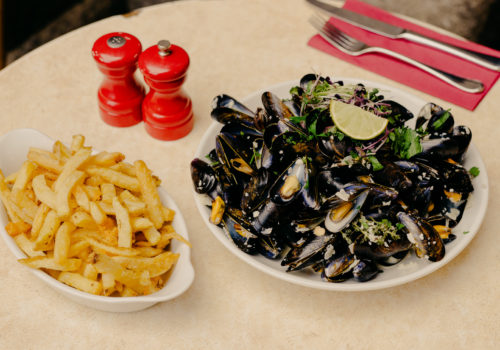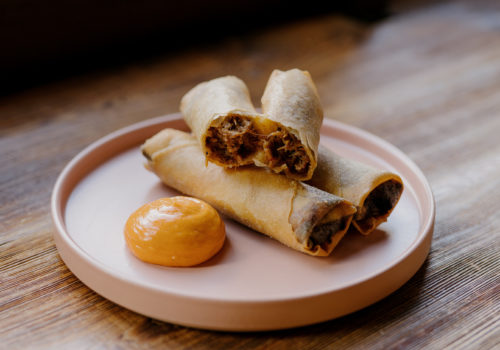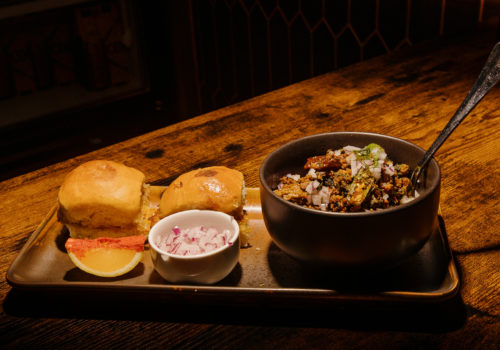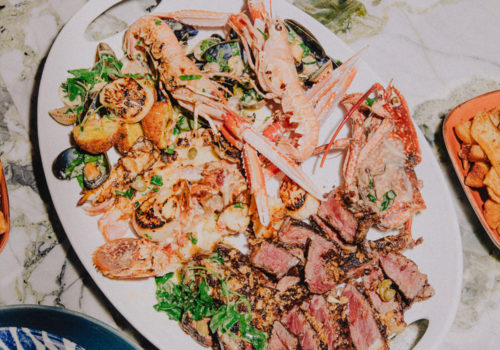Signature Dish: Hang Dai’s Woodfired Roast Skeaghanore Duck
Words: Emily Mullen
Photography: George Voronov
Hang Dai is the human equivalent of that nerdy kid you knew in school. Their interests were unique, the depth of their knowledge: wide. While all the other kids were out in the yard eating snails, they stayed in the classroom putting the finishing touches on their robot arm or completing their hand-drawn dinosaur collection. No one quite understood their excessive levels of passion, nor could they turn it a form of mockery either. That child invariably grew into an extremely cool adult, with an ability to specialise and to pull off outrageous projects with the panache and the poise of a person that’s been doing it for their entire lives.
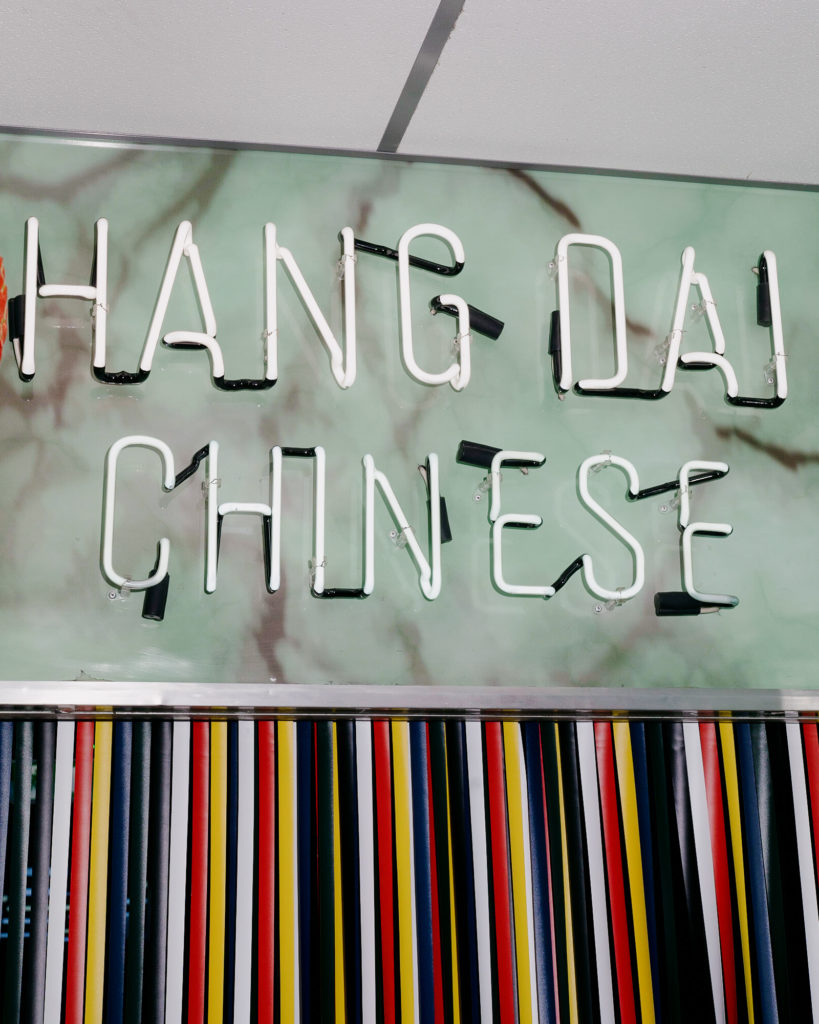
Retaining its nerdy instincts and flexing them in an effortlessly unapologetic manner, Hang Dai becomes an accidentally cool place, containing all the trappings of a consciously cool place. With a name that’s a nod to a cult TV programme, potentially one of the best sound systems in the city, a psych interior, creative food and potent cocktails.
Their signature dish is emblematic of this too. A dish that’s as distinctive as the brand that sets it out onto the customer’s table. To put it simply, it’s a whole duck that’s roasted in a specifically designed oven, each part of the duck is used to create a series of dishes. Hang Dai’s Beijing Style Woodfired Roast Duck is a full-body experience. A dish that’s best enjoyed with company, with a wide table in front.
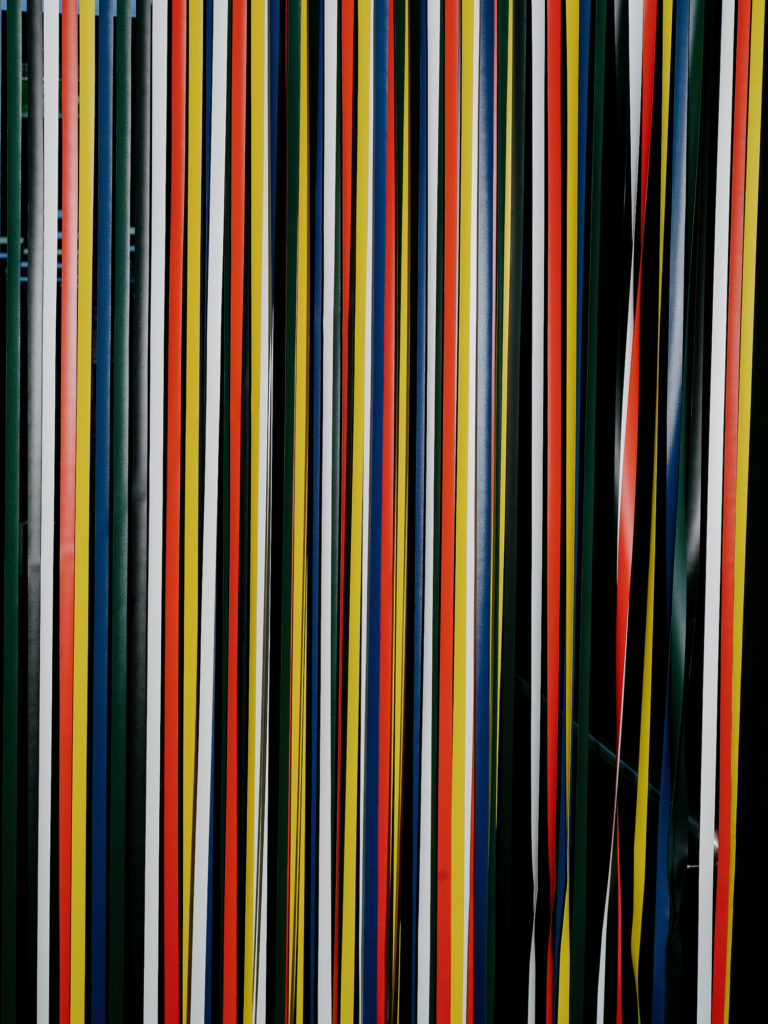
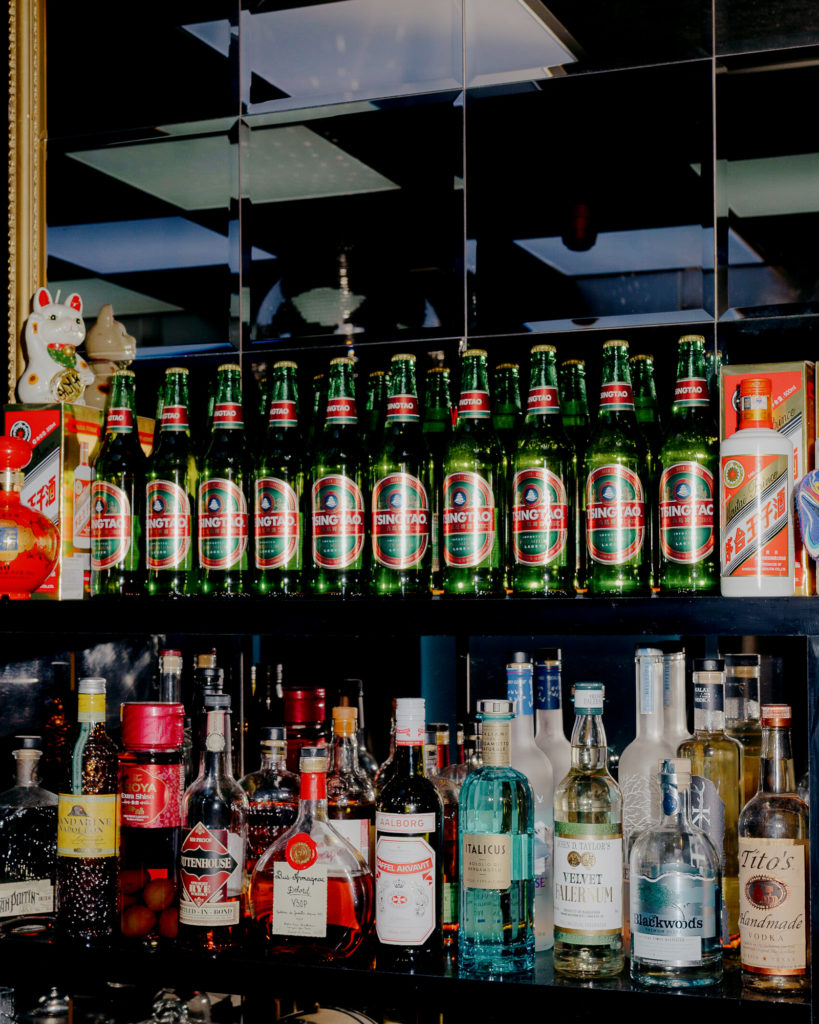
It starts with a duck, typically a female that hails from Skeaghanore farm in West Cork. This duck is destined to hang in a specifically designed fridge for three days, but before then it must be processed. Processing involves first filling the duck’s cavity with a mixture of five-spice, sugar, Szechuan peppercorns, ginger, shallots, star anise, Cassia bark and salt, this head chef Adam Dunn tells us “seasons and cures it”.
Then the second—and from an outsiders perspective may be the strangest—step, which involves pumping up the duck with air before tying it up. This procedure Dunn tells us “allows the skin to render and go crispy in the oven”. A basing solution is added to the outside of the duck before it is placed into the fridge to dry out for three days. It’s then placed on a hook and deftly led into the blazing oven.
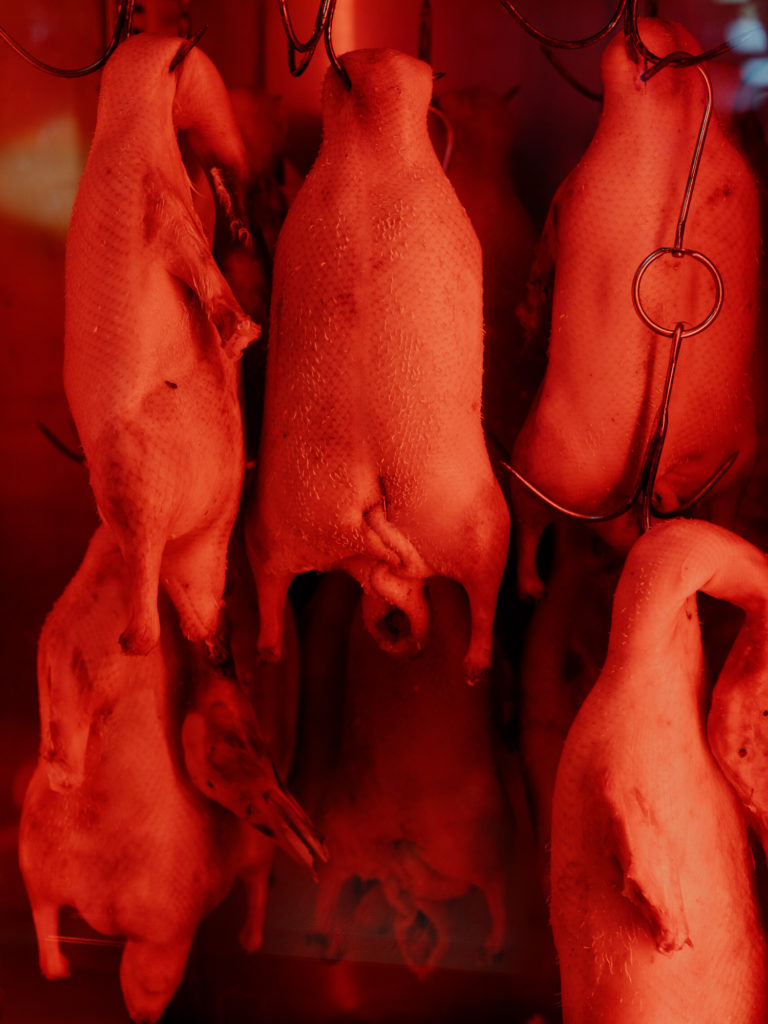
It’s positioning and timing is important, the front of the duck must face away from the cherry wood flames until it’s given a turn, right at the end. Once the duck is done and its skin is “blistering” and charred, it’s left to rest for about 30 minutes. “It’s like a steak” Dunn tells us, “all the blood is moving around there, you need to let it rest before touching it”.
The duck is then carved up, its crispy skin removed, its breast washed with a glaze before being carved up to turn into duck pancakes (these are served with chopped cucumber and cherry hoisin sauce) or to be eaten straight from the dish (to be served alongside the sliced head and neck, cut diagonally which allows customers to try the brain if they are so inclined). The meat from the legs is then turned into either stir-fried duck noodles or yuk sung (the meat mixed with hoisin and black vinegar served in lettuce cups with cucumber). The carcass is then used to make a duck broth that comes with Chinese pickles.

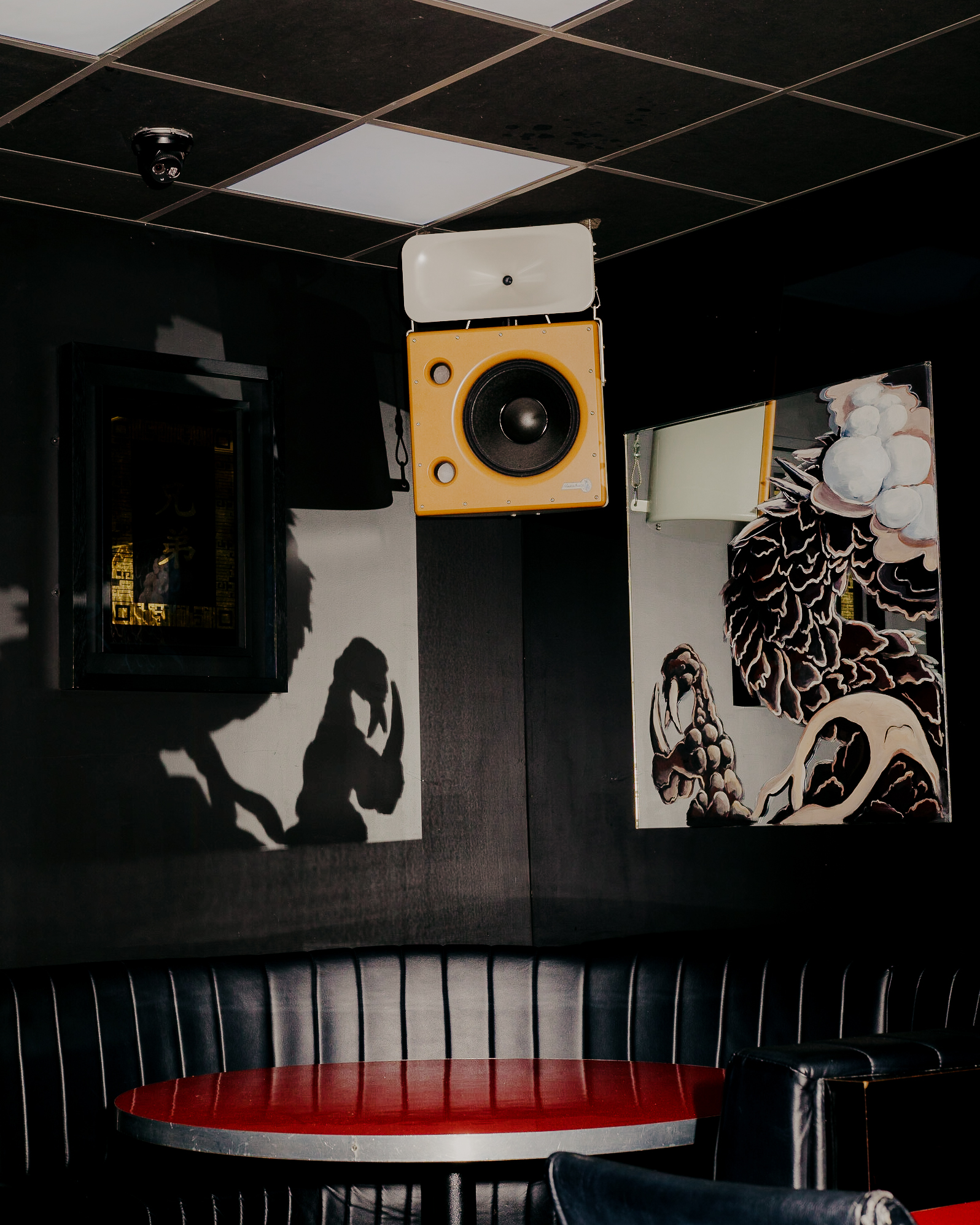
There’s a circular economy to the duck, each part of it is utilised or transformed into something else. It’s also used as a bit of an emblem of Hang Dai, the processing of the duck is placed on full display. Once customers troop into the antechamber of the restaurant, they walk past the hanging ducks, they smell the wood char that will then cook them. This Signature Dish is embedded into the very ecosystem of Hang Dai and it was designed to be that way from the start, done with a singular level of passion by the team that created it.
There’s a circular economy to the duck, each part of it is utilised or transformed into something else.
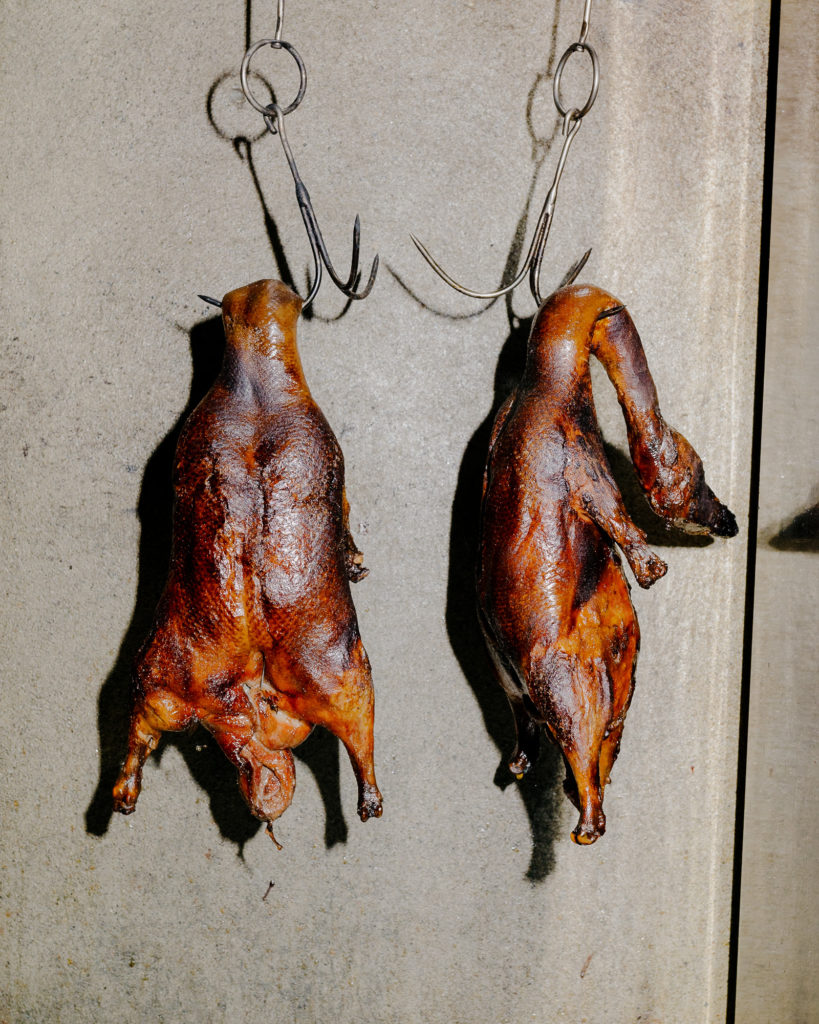
To talk more about the processes, his career and his inspirations we chat to Hang Dai’s Head Chef Adam Dunn:
There’s a lot of different elements to the duck, what’s the most important step in the process?
Every step of the process makes the duck, each step is as important as the next, the salt from the curing, the seasoning process in the cavity is super important, separating the skin is a really important factor, the basting is critical especially having the right recipe for that. The main key element is how you cook it. At the start, the flames are built up high, but during the process of the ducks being cooked, they go die down and go lower and lower. The back of the duck is going to take in that heat and the breast facing the other way is going to be protected, if the breast was facing the fire it would overcook, and the leg meat takes longer to cook so that’s why we put the duck in facing the back of the oven. In the last ten minute, we turn the duck so it gets a light crisp.
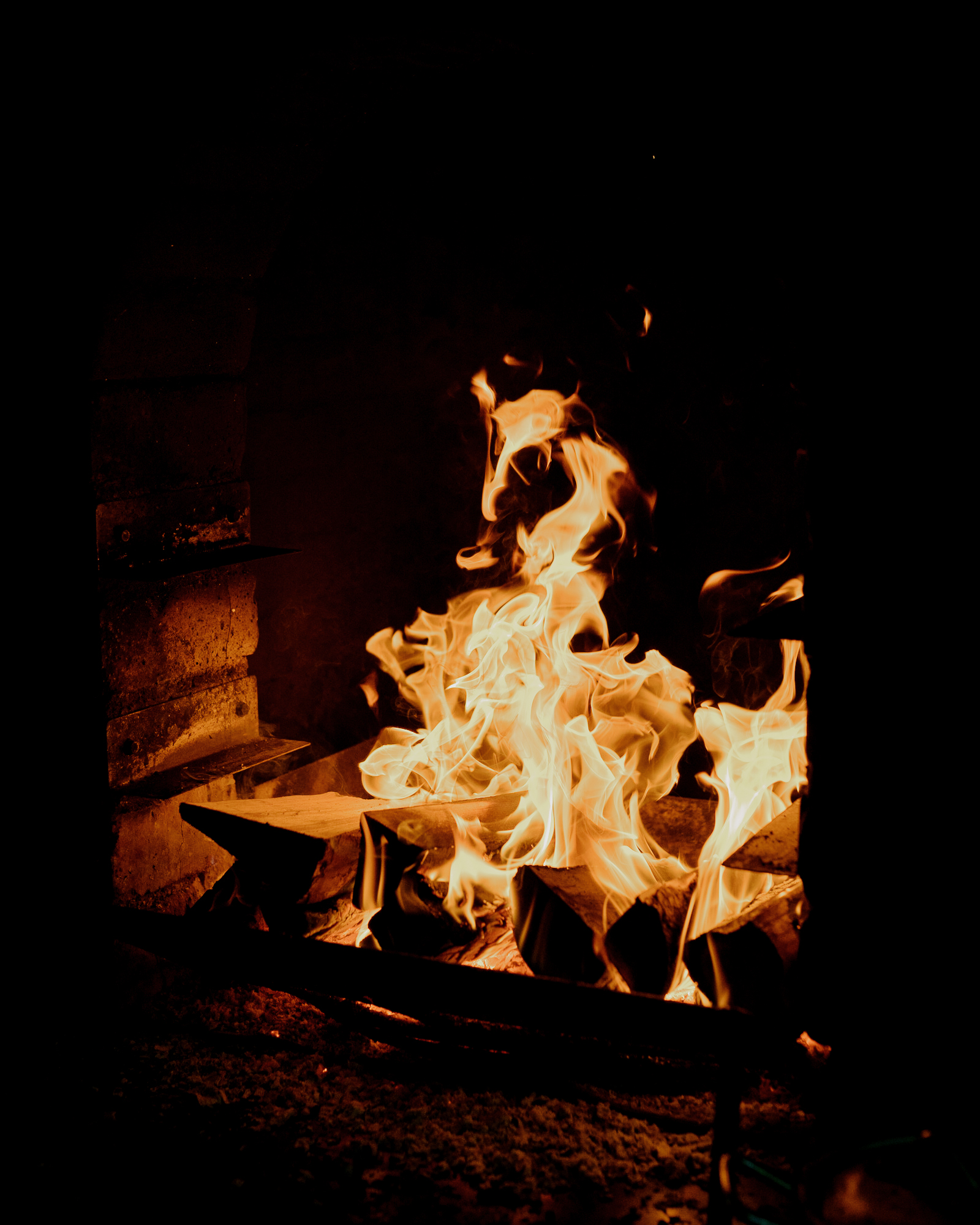
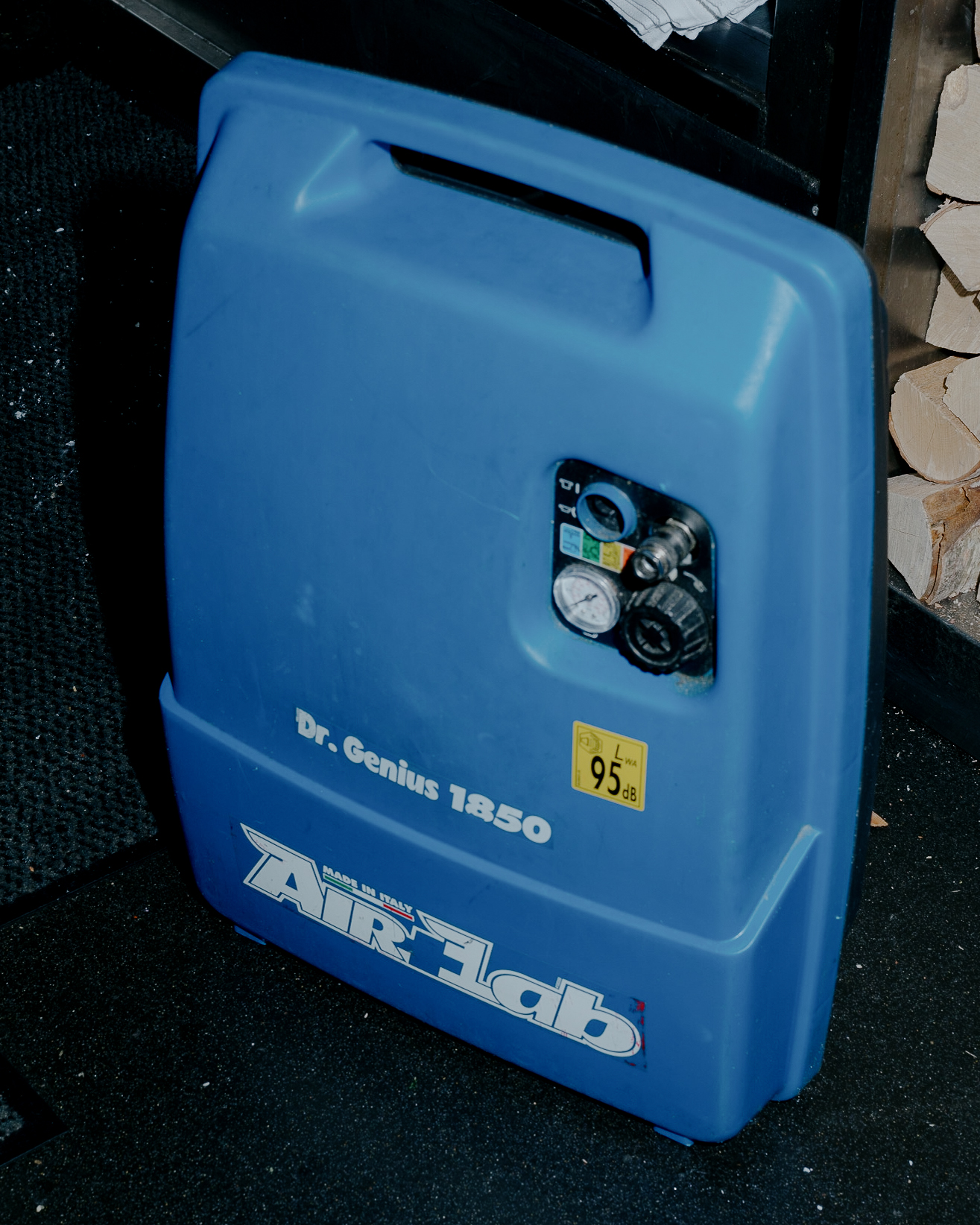
It’s a fairly unique cooking style, how do you define that difference?
The difference between Hang Dai and other places around town is that the ducks are cooked fully through. We try to cook our ducks almost French-style, whole but also with a light pinkness to the breast, the way you would have duck when you go to a French restaurant. It comes medium-rare, medium. So we are going for that Chinese style preparation and cooking but then the tweaks of it are different to how you would normally get a Peking duck.
Is it nice that the ducks are placed front and centre at Hang Dai?
The process is a great focal point, people see the ducks hanging, now some people find it a little gross, but it’s also the process of what Hang Dai is. The restaurant was built around the oven, it’s part of the kitchen which is the main priority of cooking with ducks, but also a feature of the restaurant. It’s out there, people walk past, that’s why we try to utilise it and have set up the BBQ grills on it, because when people see you have a fire out in the restaurant with other meats being cooked on it that makes it really interesting.
Is it a difficult skill to master, cooking the ducks?
Getting the temperature of the oven right is key and how you learn how to figure that out is by repetition, by doing it over and over again.
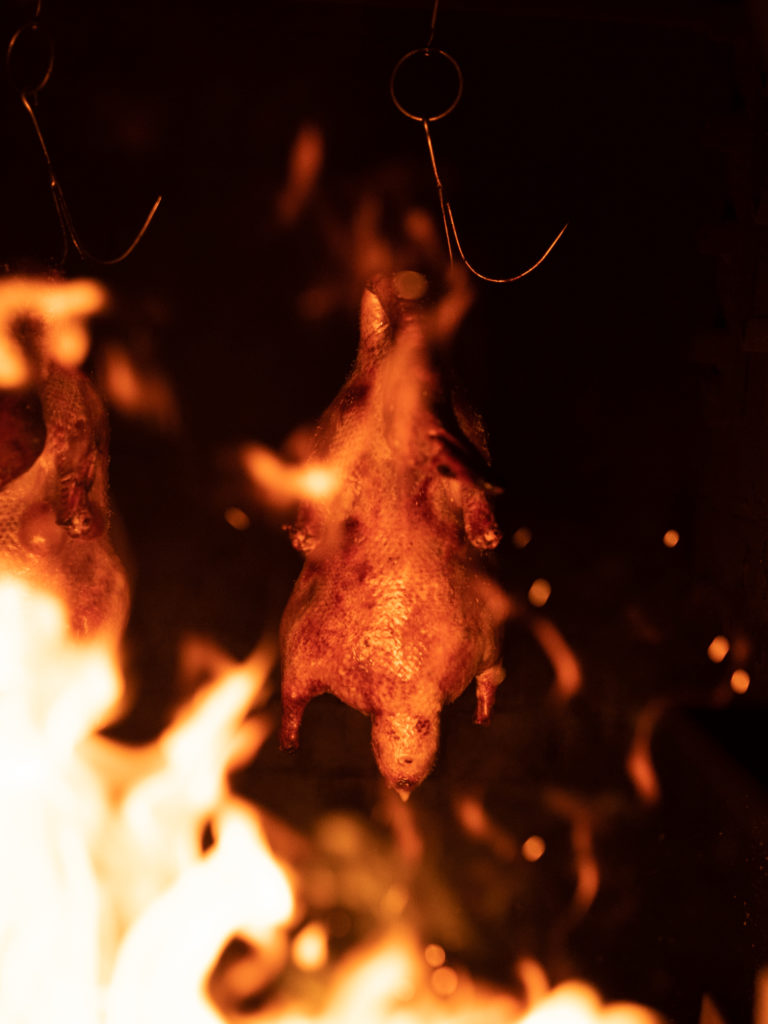
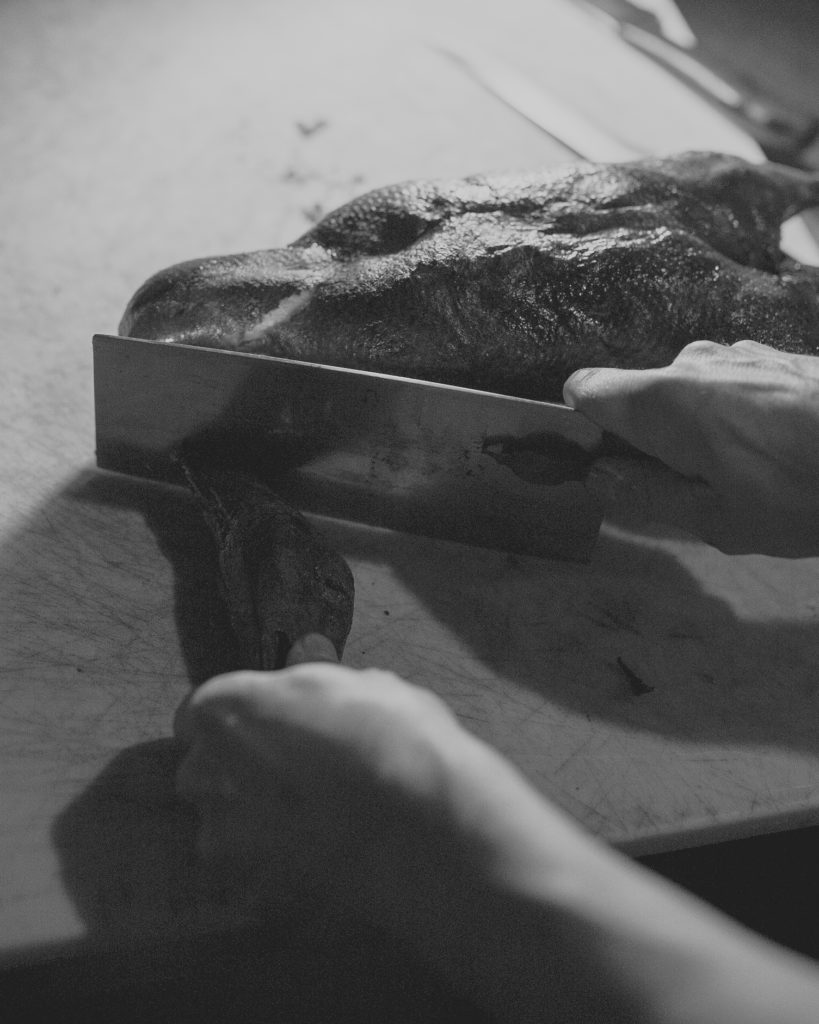
Would the duck be your best seller?
It’s a big seller, on the weekends we go through about 12 full ducks. We ask people to pre-order it so we will roughly know the numbers of ducks and then we have a couple of extras just in case.
You are new enough to the kitchens of Hang Dai, you previously worked in 777 for several years, how has the transition between cuisines been for you?
It keeps things interesting, keeps you on your toes. You keep doing research, there’s also an element of developing your own skills which is important. It’s not just about cooking any cuisine but it’s trying to be authentic to its origins, that’s the key it’s not just getting in there and throwing soy sauce into a dish it’s about doing research and knowing what region it comes from, the flavour content and really working within those parameters.
Have you worked with Asian cuisines before?
I trained in Australia, in Rockpool for Neil Perry, he had a massive empire. I was very fortunate at the time that he had Asian restaurants so on my days off or my nights off I’d go working in his Chinese restaurants and trying to learn basic techniques. That’s what I got a little bit of training from in Asian cuisine, in Australia Asian food whether that be Thai or Malaysian is everywhere. When I first came here (over 20 years ago) I was pretty disappointed with the food scene over here but over the last ten years, it’s just become amazing.
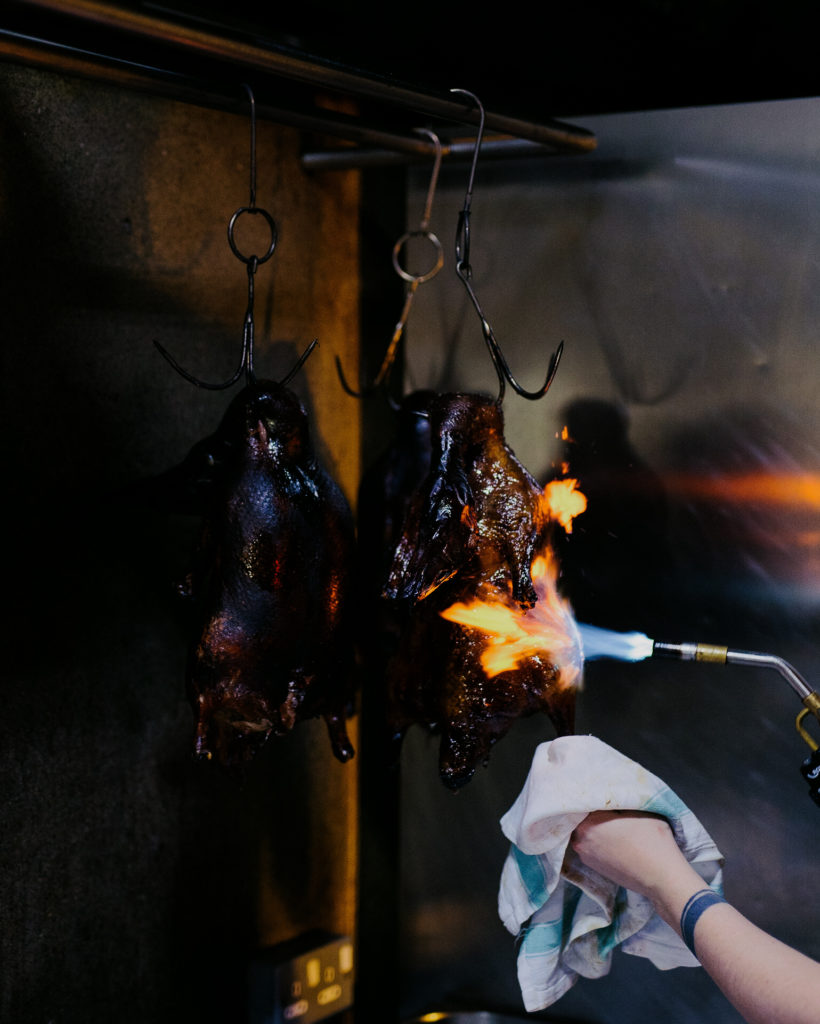
What made you come to Ireland?
My twin sister was over here, and we were on the phone one night and she said “come over!” and i did, when I arrived within two weeks she had left to go back to Australia and I stayed here. I went to London for a couple of years but came back.
You’ve seen the insides of a couple of kitchens in that time I imagine?
Over the years I’ve worked in so many restaurants all over Dublin, I’ve been blessed I’ve worked for Johnnie Cookes, the Four Seasons, in Dobbins, 777, so many great places in Dublin.
Was it important for you to move somewhere that’s exciting with a bit more going on?
Anywhere I work I like it to be exciting and professional. It’s important that the floor and the kitchen gel and work as one, and it really works well here. We get to change the menu frequently, we are looking at rolling out a new menu in the coming weeks, which is exciting.
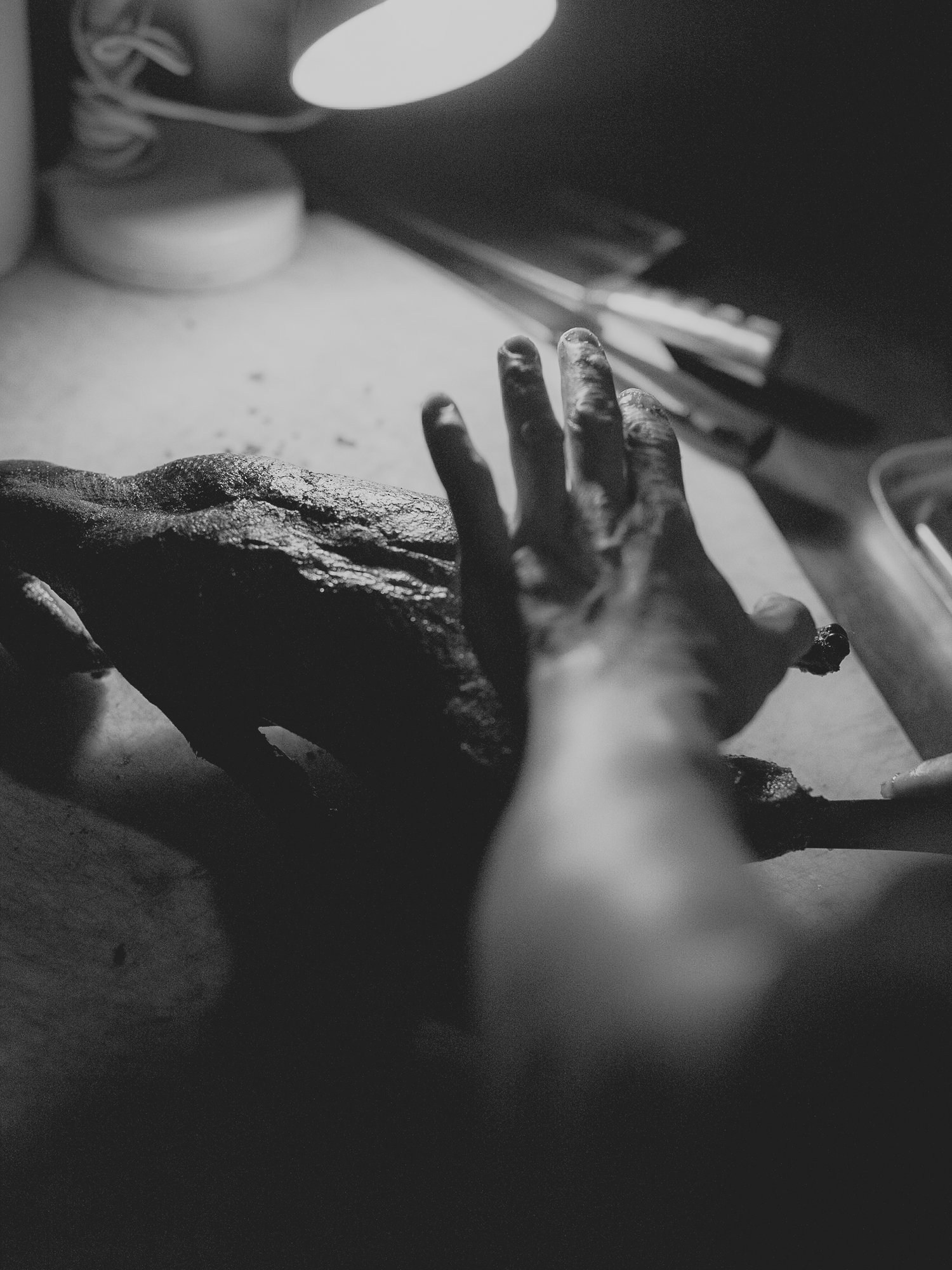
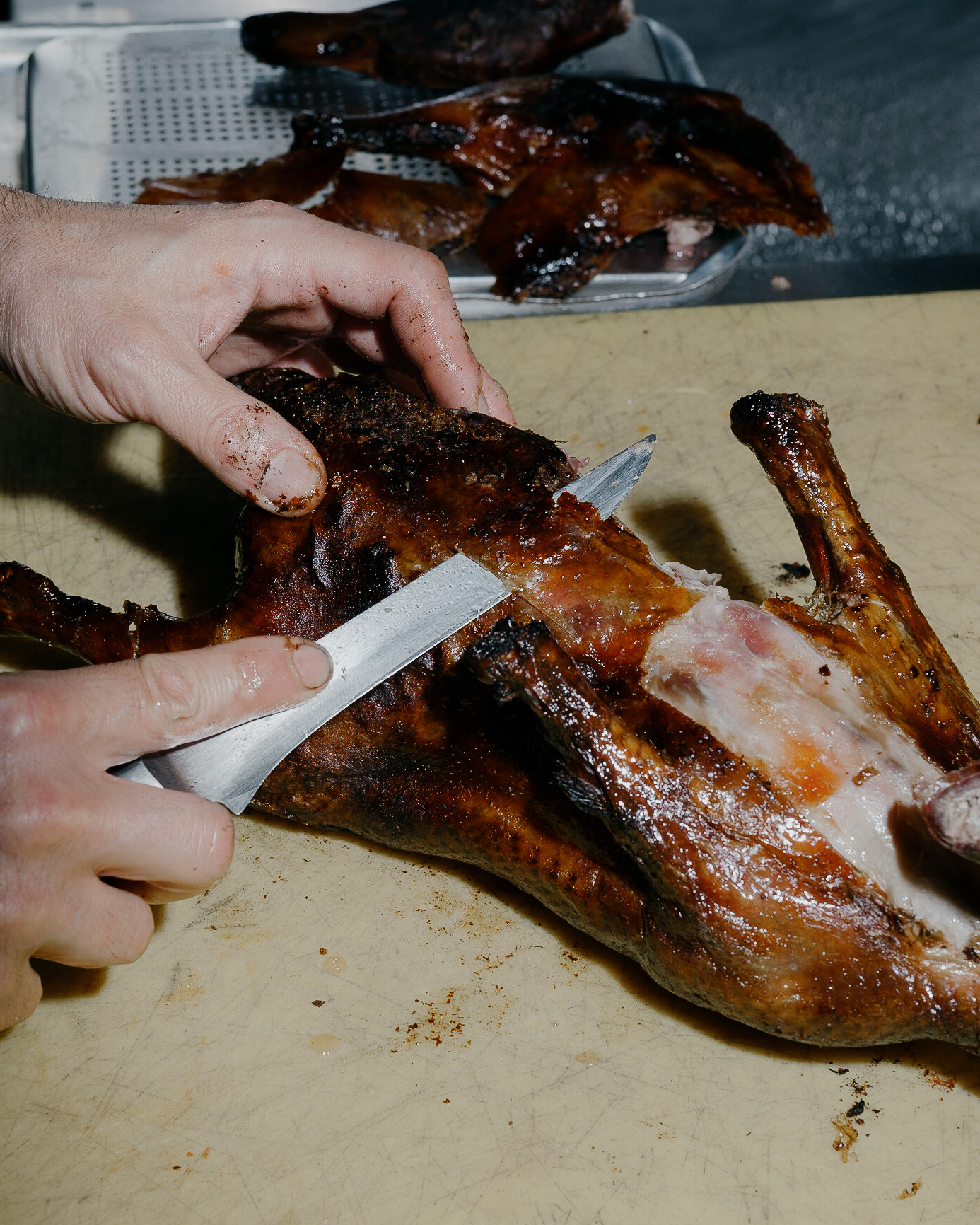
You can see that there is no energy about the place since you joined
Ah but Hang Dai since before I joined was always strong. It has always been innovating and has always moved forward. Hopefully, I keep that happening, because you need to keep the wheel turning. Also, it’s great to be part of a great company.
Is it nice for you to have the kitchen so integrated into the dining area?
I love it, I like working in kitchens that are either open or have direct contact with the restaurant, because you are connected to the customer, and the customer, more importantly, can see your working environment. With all that is also keeps me and the guys in the kitchen, we are always aware that we have to be tidy and that we have to work cleanly because we are exposed. People can see everything which is great, it’s much better than being stuck in a little box behind closed four walls.
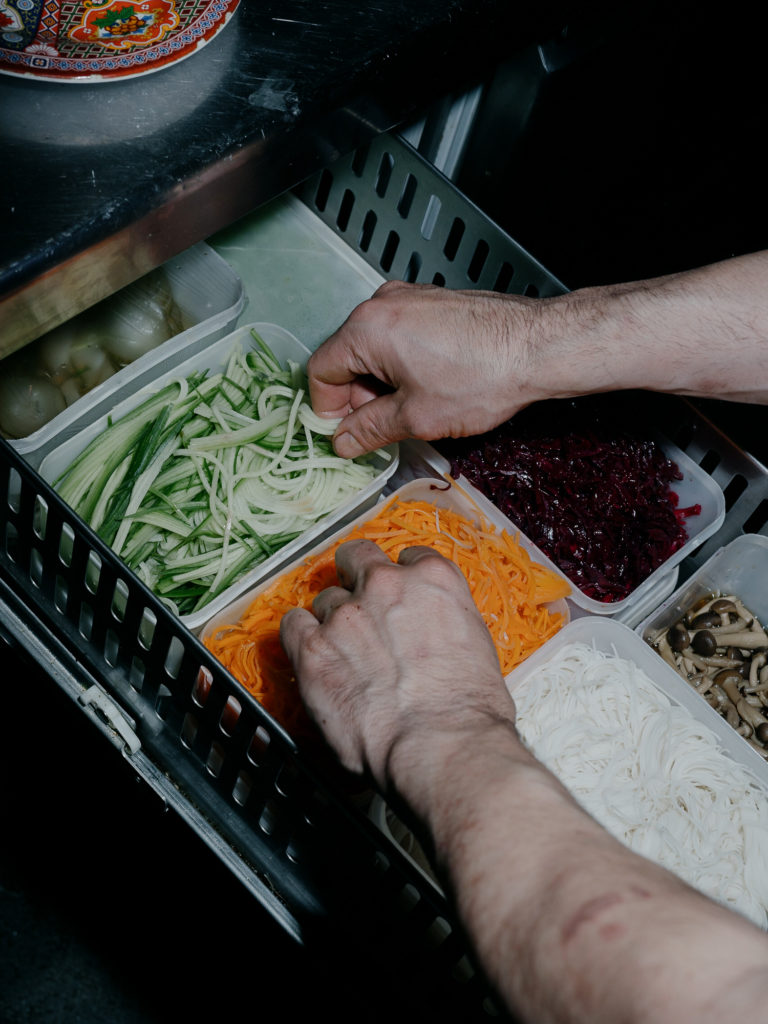
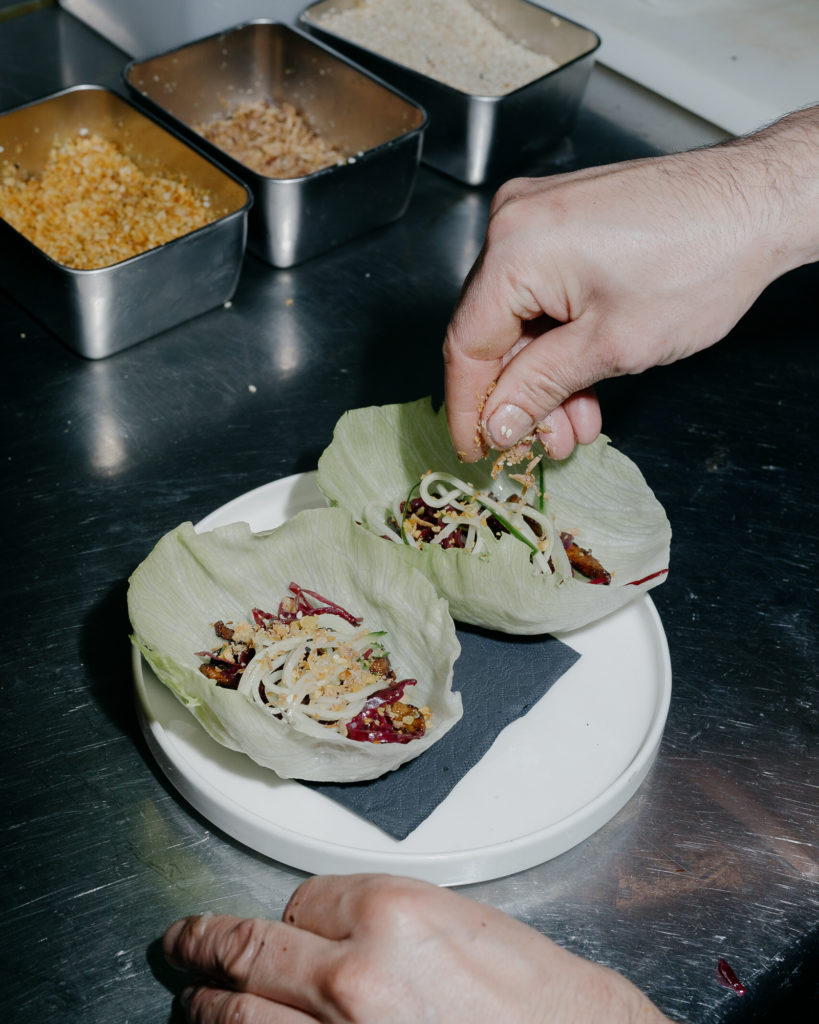
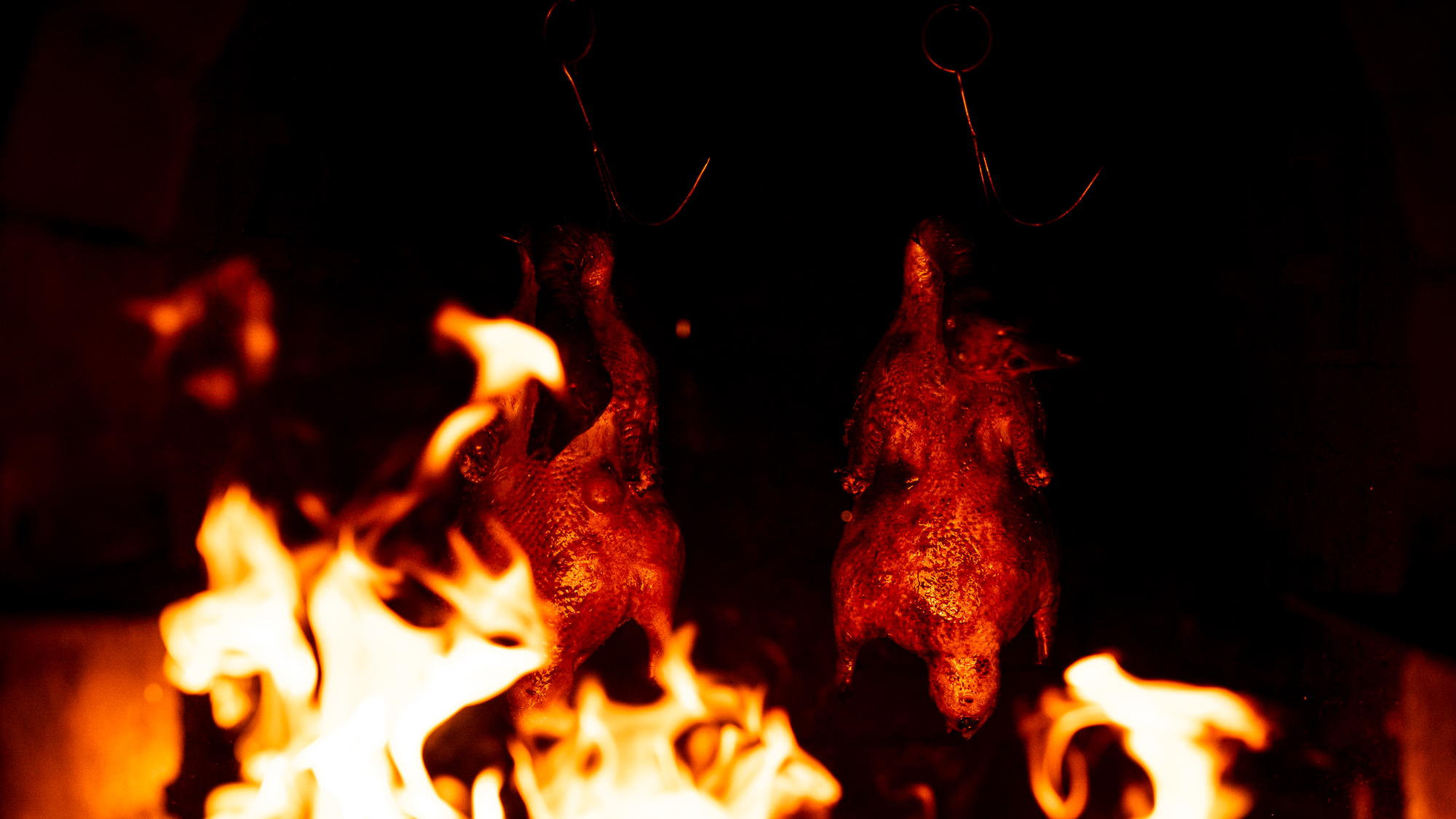
How do you find the kitchen?
It’s a nice size, I’ve worked in bigger but I’ve also worked in way smaller. We have a steamer section where we steam fish, the starter section, fry section, wok section. Every section has different cooking stages of the processes involved in cooking Chinese food.
Is important to use all the elements of the whole duck as possible?
Since we reopened after covid, we have started to serve the duck broth which is made out of the duck carcasses. We also use the duck stock regularly making soups and sauces. Customers will get a little mini duck soup, they order half a duck, we have recently added on what form their leg meat comes in, we used to serve it with the half duck and customers made duck pancakes out of them but we decided to change it up a little bit by letting the customer choose whether they have yuk sung as a starter or duck noodles. Sometimes people have wanted both and we do that for them, it’s a bit of a cliche, but the customer is mostly always right like we work in the hospitality business to try and create that magical moment for people to enjoy, this place is great because we have great floor staff, the music, the cocktails, when people come in here it’s a triple threat you have that entertainment factor of beautiful cocktails, music and amazing food.
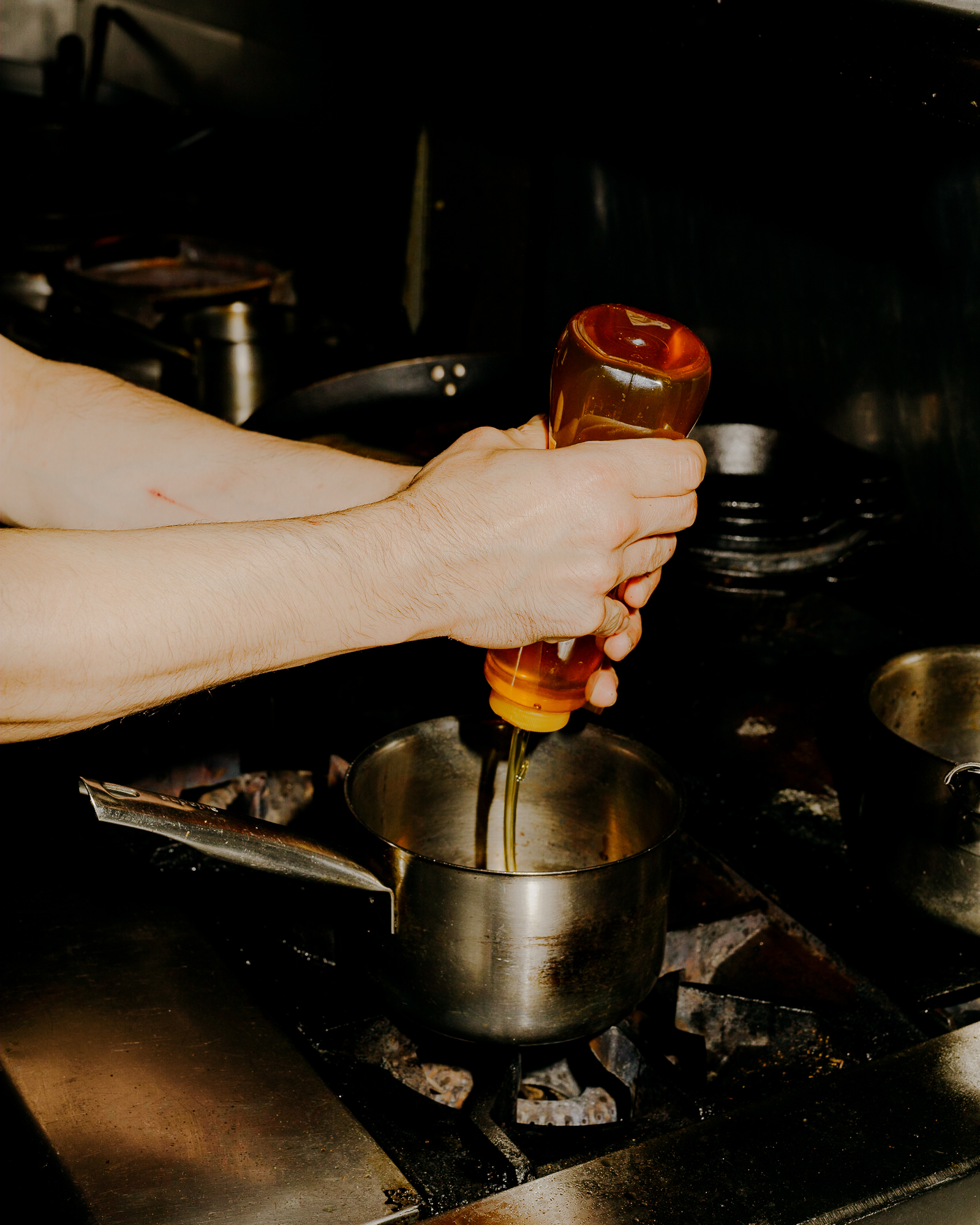
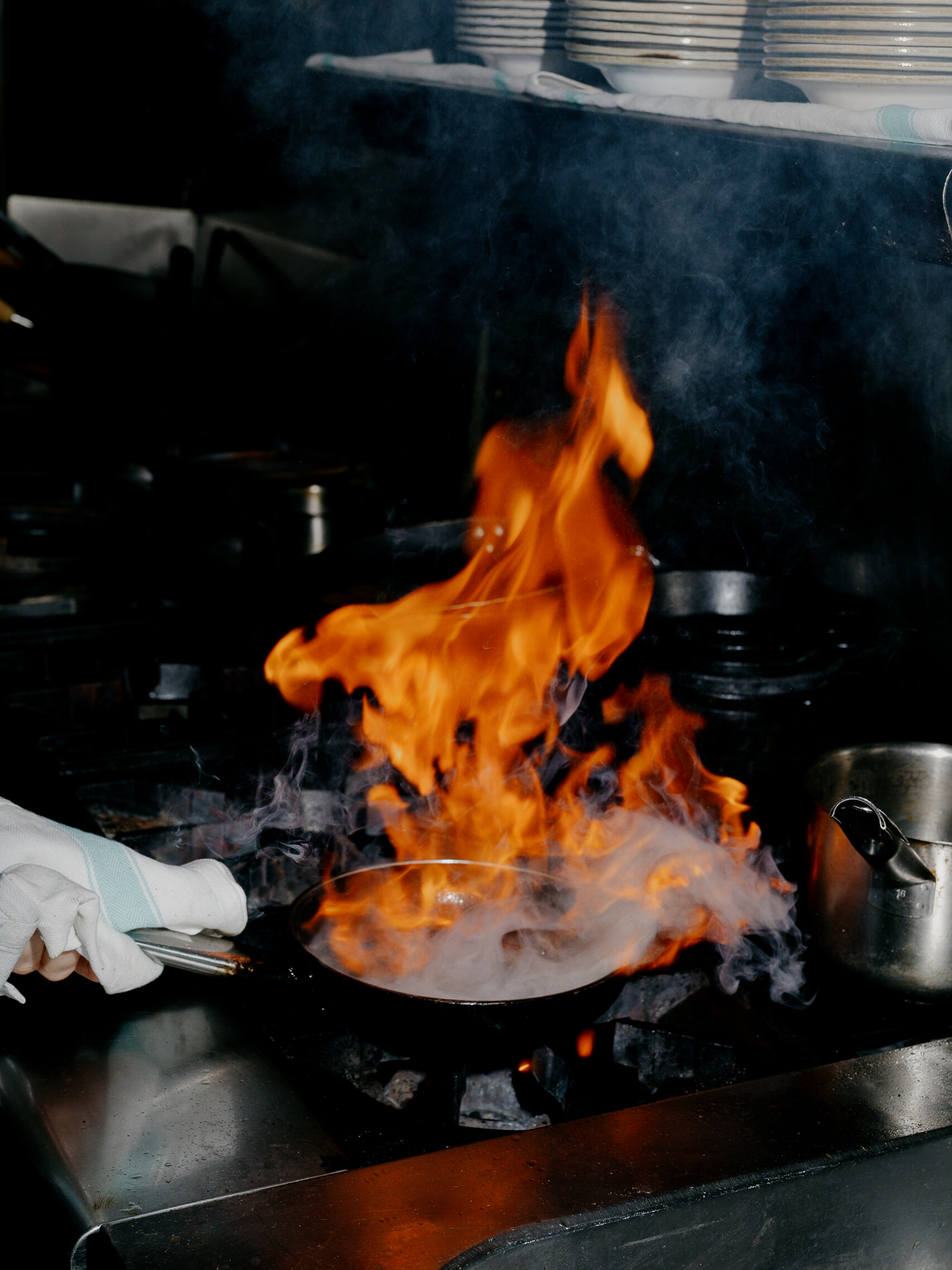
Where do you normally get your inspiration for your dishes?
Researching, following trends, following restaurants in London and Australia (since I’m Australian). I eat out a lot, trying to take on board different flavour contents. Then you go home and you flip it up a little bit. There’s such a great variety of restaurants now, what’s happening with the food scene in Dublin in the past six or seven years the quality is just getting higher and higher. If you aren’t competing at a high level, evolving the business and evolving the food there are other restaurants that will. It’s good it keeps competition really high.
Would you consider Hang Dai to be a special ocassion dinner spot?
Yes and no because it does have that entertainment feel to it. We’ve found that since the lockdown, doing takeaway we got a lot of new customers coming in, from different age brackets as well, that’s why we try to make the menu as different and diverse for all different types of customers and why we change it a lot as well. It is an occasion restaurant but we also get the same customers coming in two or three times a week.
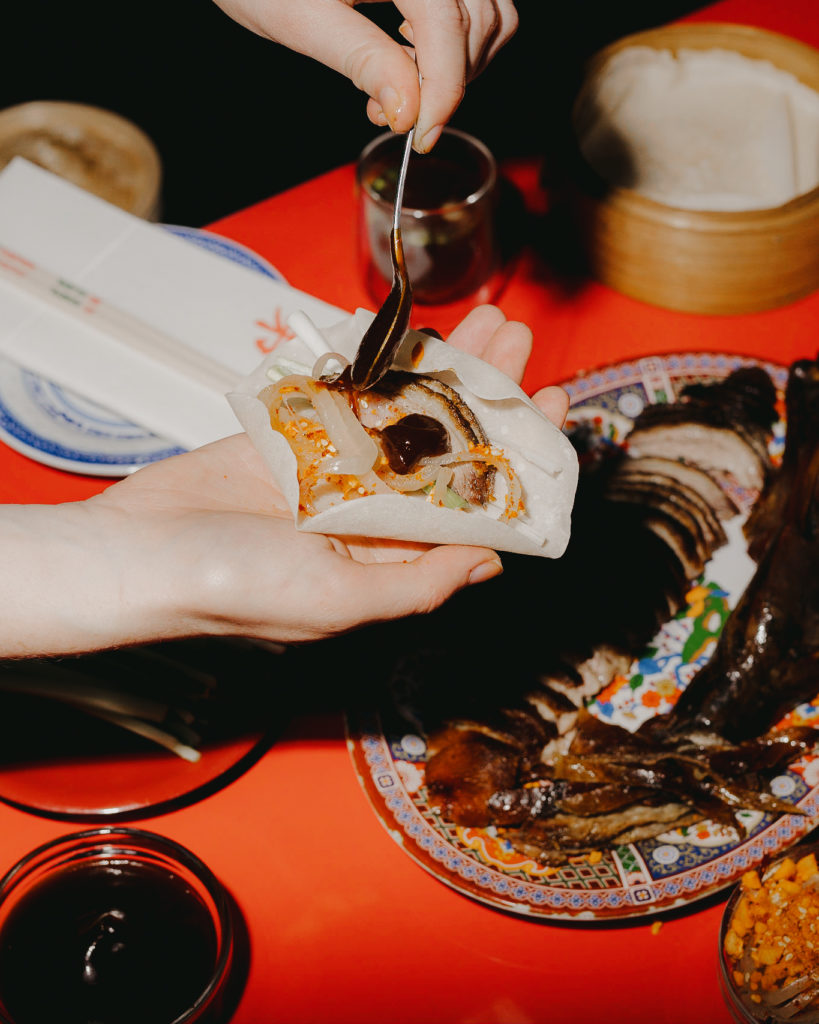
If you aren’t competing at a high level, evolving the business and evolving the food there are other restaurants that will.
Adam Dunn
Do you find that your customers are more adventurous when they come to Hang Dai?
It’s personal preference, some people come here and stick to what they want and like or you have foodies coming in and will try anything. We have some great things on the menu like offal and duck hearts, and people who like things like that love it, people who don’t won’t go near it. I like having a variety on the menu, so whatever makes people happy is good by me.
What’s your favourite dish on the menu?
The steamed oyster with Xo sauce is my personal favourite, it’s amazing.
It is great that you have more out-there things on your menu
It is great personally things like the duck, I would never be able to do this normally. Working with interesting things like, we have a suckling pig we are trialling at the moment, to be able to get that whole animal, butcher it and go “okay what are we going to do” is a great part of the job. We try and buy as many Irish products as possible.
Drinks-wise what do you recommend serving with the duck?
I’m a Tsingtao man, but the cocktails here are pretty amazing. If I come here and I have a cocktail, I end up drinking cocktails all night, it is quite dangerous.
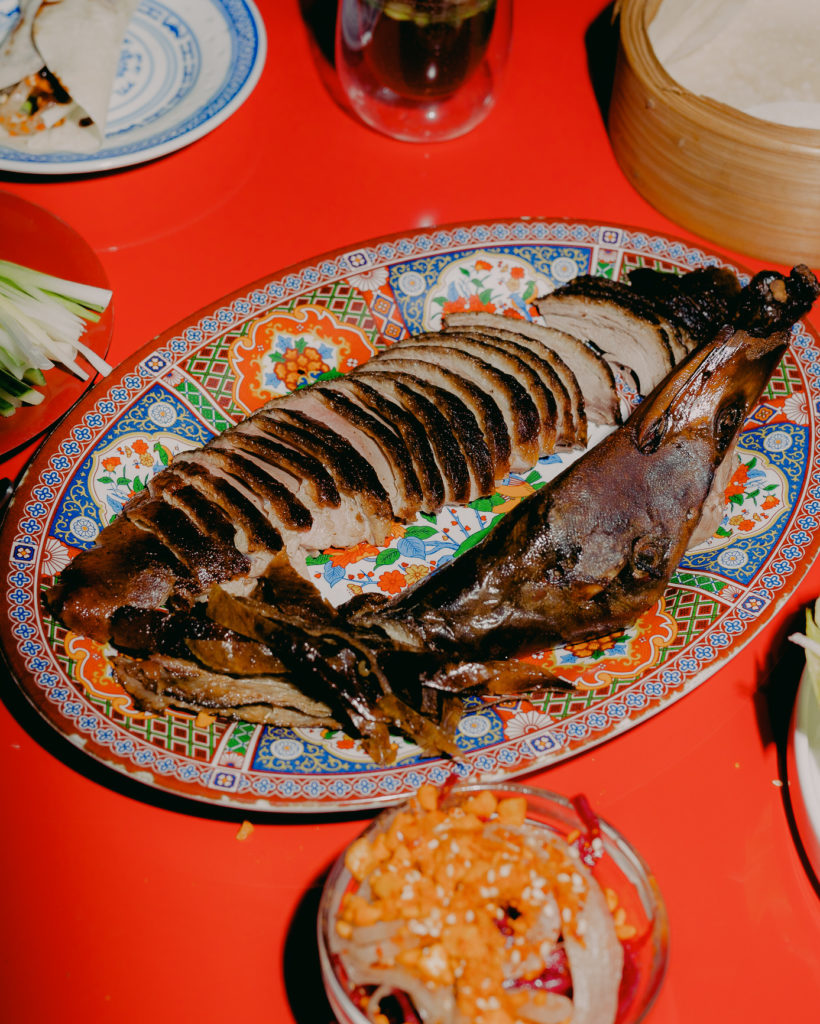
You can find Hang Dai on 20 Camden Street Lower, for more information visit the website.
